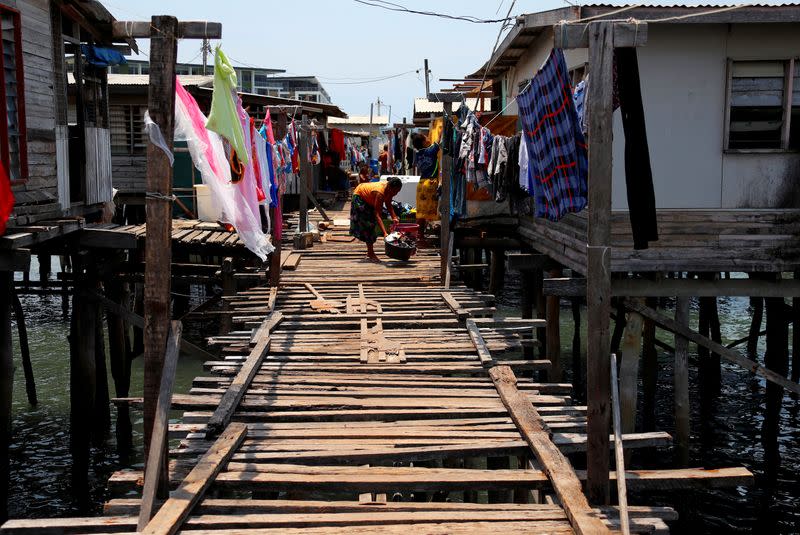By Colin Packham
CANBERRA (Reuters) – Australia is considering diverting COVID-19 inoculations from its vaccination program to Papua New Guinea (PNG), where the coronavirus threatens to trigger a humanitarian disaster, a government source said on Friday.
PNG is expected to receive 588,000 doses of the vaccine by June under the COVAX initiative to help the poorest countries, but doubts about these supplies have arisen due to new restrictions imposed on producing countries as the virus spreads.
The European Union is implementing stricter vaccine export controls and has not yet responded to the Australian request to release 1 million doses of the AstraZeneca vaccine that was contracted to go to Australia for PNG instead, the source told the Reuters.
India has temporarily suspended all major exports of the AstraZeneca injection made by the Serum Institute of India to meet domestic demand, which will almost certainly delay deliveries to PNG.
There is growing concern that PNG, an island country with about 10 million inhabitants, many living in impoverished and isolated communities, cannot wait.
“We have a humanitarian disaster unfolding in our backyard,” said the source, who is familiar with the government’s thinking on the matter. The source declined to be identified as he is not authorized to speak to the media.
Australia is still lobbying the EU for 1 million doses, but considering other options, the source said.
“There is still no decision, but the government is considering sending vaccines,” said the source, who did not comment on the quantities of doses under discussion.
A government spokesman declined to comment.
‘VERY URGENT’
PNG, administered by Australia before its independence, registered more than 4,000 cases of the virus, according to data released on Thursday.
But Australia says this count vastly underestimates the extent of the crisis, as the Pacific country does not conduct mass tests.
The largest PNG hospitals have reported that up to 80% are returning positive and Prime Minister James Marape said the virus “has spread”.
The only vaccines that PNG has received are just over 8,000 doses that Australia has sent to healthcare professionals.
“The Australian government is absolutely right to put pressure on the EU on this issue, but the situation is too urgent to wait,” said Marc Purcell, CEO of the Australian Council for International Development, which represents aid agencies.
The Australian government now faces the politically sensitive issue of whether or not to send doses of the AstraZeneca vaccine to PNG in the early stages of its own vaccination campaign.
The biotechnology company CSL is expected to supply Australia with 50 million doses of the AstraZeneca vaccine it started producing in Australia to help inoculate the entire population of some 26 million by the end of the year.
To a large extent, Australia has managed to deal with the coronavirus through blocking, detachment, contact tracking and border control. He reported just over 29,200 cases and 909 deaths.
(Reporting by Colin Packham; Additional reporting by Jonathan Barrett; Editing by Robert Birsel)
